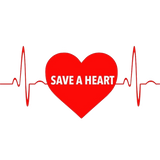What Does a Heart Attack Feel Like?

A heart attack is a serious and potentially life-threatening medical emergency. It occurs when one or more of the coronary arteries that supply blood and oxygen to the heart becomes blocked. This can happen due to a buildup of plaque, a blood clot, or some other obstruction. When the blood flow to the heart is blocked, the heart muscle begins to die.
The symptoms of a heart attack can vary from person to person, but some common signs include:
Chest pain or discomfort: This is the most common symptom of a heart attack. The pain may feel like pressure, squeezing, or aching in the chest. It may also radiate to the arms, neck, jaw, or back.
Shortness of breath: This can occur with or without chest pain. You may feel like you can't catch your breath, or like you are breathing very quickly.
Nausea or vomiting: Some people may feel sick to their stomach or vomit during a heart attack.
Sweating: You may break out in a cold sweat during a heart attack.
Lightheadedness or dizziness: You may feel faint or dizzy, like you are going to pass out.
In addition to these common symptoms, a heart attack can also cause other symptoms, such as pain in the abdomen, jaw, or neck; fatigue; or a rapid or irregular heartbeat.
If you think you are having a heart attack, it is important to seek medical attention immediately. Call 911 or your local emergency number, and try to remain calm until help arrives. A heart attack is a medical emergency that requires immediate treatment to minimize damage to the heart. By recognizing the symptoms of a heart attack and seeking help quickly, you can improve your chances of a full recovery.


